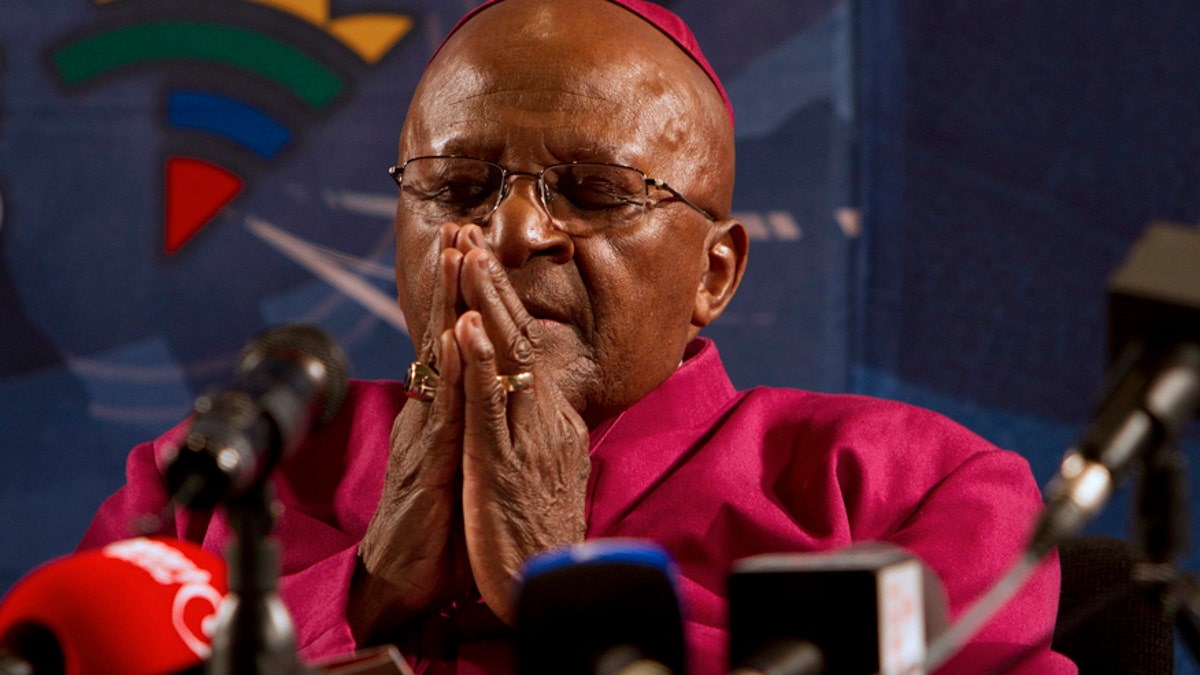
Archbishop Emeritus and Nobel Laureate Desmond Tutu. (Reuters)
Editor's note: We all need to forgive, and there are many of us who need forgiveness. The question is, how do we forgive? In their new book, "The Book of Forgiving," Archbishop Tutu and his daughter Mpho Tutu share their experiences, the stories of others who have inspired them, and what they have learned about the process of forgiving, to help all of us learn the answer to this. And, they are calling YOU to join the Tutu Global Forgiveness Challenge, to join them in undertaking the path for healing ourselves and our world.
It seems there is no end to the creative ways we humans can find to hurt each other, and no end to the reasons we feel justified in doing so.
Our journey in South Africa was quite long and treacherous. Today it is hard to believe that, up until our first democratic election in 1994, ours was a country that institutionalized racism, inequality, and oppression. In apartheid South Africa only white people could vote, earn a high-quality education, and expect advancement or opportunity.
[pullquote]
There were decades of protest and violence. Much blood was shed during our long march to freedom. When, at last, our leaders were released from prison, it was feared that our transition to democracy would become a bloodbath of revenge and retaliation. Miraculously we chose another future. We chose forgiveness.
We did not know where this choice would lead us. At the time, we knew that telling the truth and healing our history was the only way to save our country from certain destruction.
There is no end to the human capacity for healing. In each of us, there is an innate ability to create joy out of suffering, to find hope in the most hopeless of situations, and to heal any relationship in need of healing. There is nothing that cannot be forgiven, and there is no one undeserving of forgiveness.
Forgiveness is the journey we take toward healing the broken parts. It is how we become whole again. The path of forgiveness is not an easy one. On this path, we must walk through the muddy shoals of hatred and anger and make our way through grief and loss to find the acceptance that is the hallmark of forgiveness.
We invite you to join us on this healing, transformational journey, and walk with us on the path of forgiveness.
It doesn’t matter whether you are having trouble moving forward from the wrongs that were done to you, or whether you need the courage to admit the wrongs you have done.
There is no one who is irredeemable, no situation that is without hope, and no crime that cannot be forgiven. If you are seeking to forgive, we hope to point the way to freedom. If you are in need of forgiveness, it is our hope we will show you a clear path to freeing yourself from the shackles of your past.
Our humanity is bound up in one another, and any tear in the fabric of connection between us must be repaired for us all to be made whole.
To walk the path of forgiveness is to recognize that your crimes harm you as they harm me.
To walk the path of forgiveness is to recognize that my dignity is bound up in your dignity, and every wrongdoing hurts us all.
Even if you believe there is no way you could ever forgive, or you believe that what you have done is so heinous you could never be forgiven, we will walk with you.
If you are without hope, paralyzed by guilt, drowning in grief, or full of anger, we invite you to come with us.
We invite you to take this journey with us not because it will be easy but because, in the end, the path of forgiving is the only path worth taking.
Excerpted from "The Book of Forgiving," by Archbishop Desmond Tutu and Reverend Mpho Tutu, reprinted with permission by HarperOne, an imprint of HarperCollins Publishers. Copyright 2014.
To sign up for the Tutu Global Forgiveness Challenge, visit forgivenesschallenge.com.








































